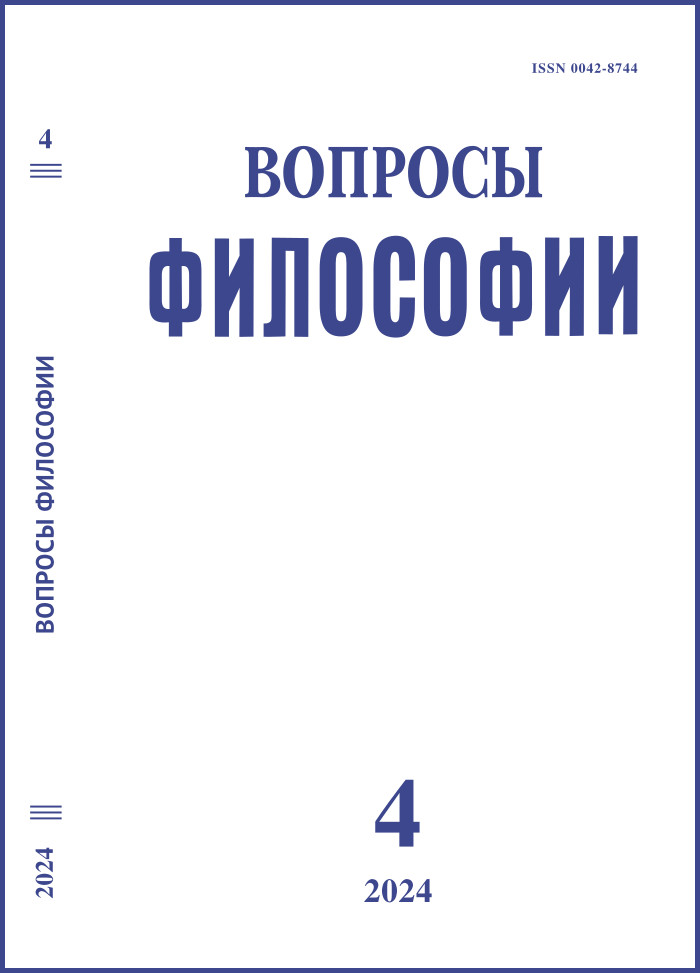Critique of Strong Artificial Intelligence’s Project from the Perspective of I. Kant’s Theoretical Philosophy
DOI:
https://doi.org/10.21146/0042-8744-2024-4-18-29Keywords:
strong AI, narrow AI, consciousness, self-consciousness, Kant, inner sense, cognitive agent, self-cognition, functionalism.Abstract
What is a strong AI? What fundamental problems are on the way to its creation? Contemporary philosophers usually associate strong AI with self-consciousness and consciousness in general. Consciousness is given to us only within human experience, so any model of it is a verbal-descriptive structure, which is conditioned, on the one hand, by the problem of the ontological status of human consciousness, on the other hand, by the possibilities of human cognition. If the answer to the question about the ontological status of consciousness determines the strategy of implementing strong AI, then the establishment of the boundaries of self-cognition determines the very possibility of creating strong AI. Taking into account the fact that Kant’s “Copernican turn” laid a new foundation in determining the boundaries of cognition, it is crucial to refer to his theoretical philosophy to determine the range of problems that stand in the way of creating a strong AI. The article shows why strategies for implementing strong AI depend on solving the ontological status of human consciousness. To solve this problem, I reconstruct the core concepts of Kantian theory of consciousness, such as self-consciousness, inner feeling, pure apperception, and self-affirmation, and place them in the context of contemporary consciousness research; I consider the compatibility of the Kantian position and functionalism and point out those fundamental limitations that act as obstacles to the creation of strong AI. Based on the Kantian critique of the features of self-knowledge, I conclude that it is impossible to approach the creation of a strong AI because of the fundamental limitations of our cognitive abilities.

